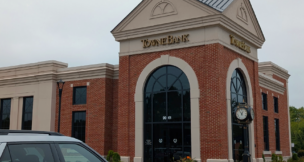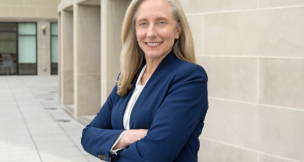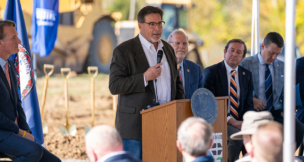Retail | Wholesale | Food | Beverage 2025: RAMPOLDT, JOEL
Lidl, a German discount retail grocery chain, entered the U.S. market in 2017. But it struggled to compete with its chief rival, Aldi, and Lidl has changed its U.S. CEO three times since 2018. In 2023, Rampoldt took the reins as the first American to lead Lidl’s U.S. division and its expansion. As of July, […]
Retail | Wholesale | Food | Beverage 2025: QREITEM, FOUAD A.
In the late 1990s, Qreitem founded Capital Restaurant Group, the company behind Paisano’s Pizza, based in Chantilly. He opened his first Paisano’s location in the Shops at Fair Lakes 25 years ago and the brand became a franchise model in 2009. The company now has more than 40 locations in Virginia, Maryland and Washington, D.C., […]
Retail | Wholesale | Food | Beverage 2025: POHANKA, GEOFFREY
Pohanka’s family has been selling cars since Frank Pohanka opened a Washington, D.C., dealership in 1919. Today, headed by Frank’s grandson Geoffrey, the company has more than 20 locations in Virginia, Maryland and Texas, and is one of the largest Virginia-based auto dealerships. It had revenue of roughly $2 billion as of 2024 and more […]
Retail | Wholesale | Food | Beverage 2025: NASH, WILLIAM D. ‘BILL’
Nash began at CarMax in 1997 as an auction manager, working his way up to president and CEO in 2016. Founded in 1993 in Richmond as a subsidiary of electronics retailer Circuit City, Fortune 500 company CarMax is the country’s largest retailer of used cars, employing almost 30,000 people, including 3,300 in Virginia. It reported […]
Retail | Wholesale | Food | Beverage 2025: PARKER, DREW
Carter Machinery has deep roots in Virginia, tracing back to 1928, when Robert Hill Carter founded Virginia Tractor in Richmond. The company was the state’s first Caterpillar dealership, and it is still going today as an independent dealer with more than 30 locations. It has more than 2,300 employees in Virginia, West Virginia, Maryland, Delaware […]
Retail | Wholesale | Food | Beverage 2025: MURRELL, JERRY
As a young student in Michigan, Murrell’s academic struggles prompted a warning from a nun at his Catholic school: He would end up flipping burgers. It took a few years, during which he earned an economics degree from the University of Michigan, worked in life insurance, got married twice and had five sons. But eventually […]
Retail | Wholesale | Food | Beverage 2025: MURPHY, KEVIN
Murphy got his start in the plumbing industry working summers at his father’s business, Midwest Pipe and Supply, which was purchased by Ferguson in 1999. A plumbing and heating products distributor with about 35,000 employees, Ferguson reported $29.6 billion in net sales in 2024. The company made its Fortune 500 debut this year at No. […]
Retail | Wholesale | Food | Beverage 2025: WOODFIN, JACK
Woodfin’s parents, John and Anne, started Woodfin Heating in 1977 to sell heating oil, growing it into one of the largest privately held HVAC-related businesses in Virginia. A Virginia Military Institute and University of Virginia Darden School of Business alum, Jack Woodfin began working with his parents in 1995 as a retail manager. He took […]
Lowe’s to buy Foundation Building Materials for $8.8 billion
Lowe’s is acquiring Foundation Building Materials for $8.8 billion, strengthening its push into the professional builder market as it battles Home Depot.
Target taps longtime executive as new CEO amid sales slump
Target names 20-year veteran Michael Fiddelke as CEO, succeeding Brian Cornell, as the retailer faces weak sales, messy stores and rising competition.
Newport News reveals plans for $400M Navy housing project
Newport News plans to begin work next year on a more than 930,000-square-foot Navy housing development downtown.
Canada’s Gildan Activewear is buying HanesBrands for $2.2 billion
Gildan Activewear is acquiring HanesBrands for $2.2B, gaining brands like Hanes and Maidenform as the apparel maker faces years of declining sales.






















